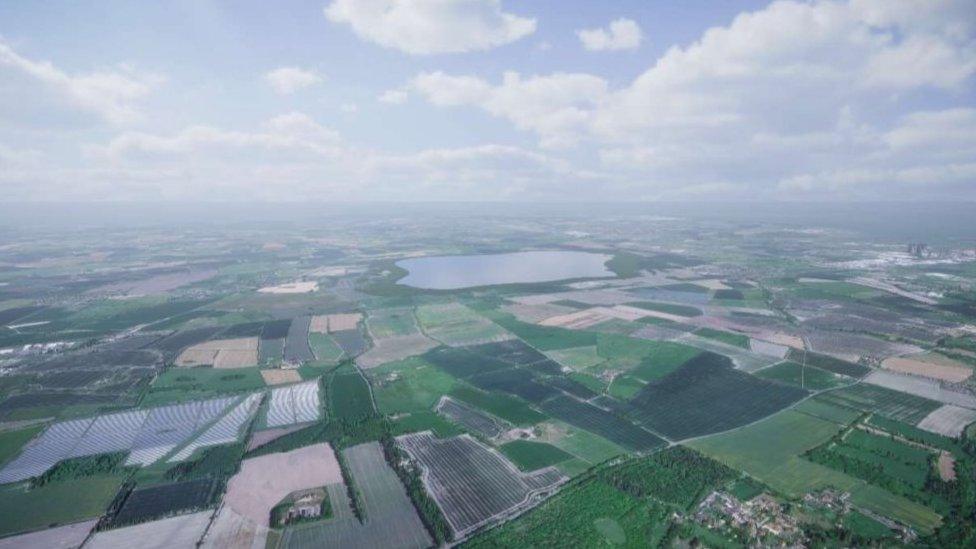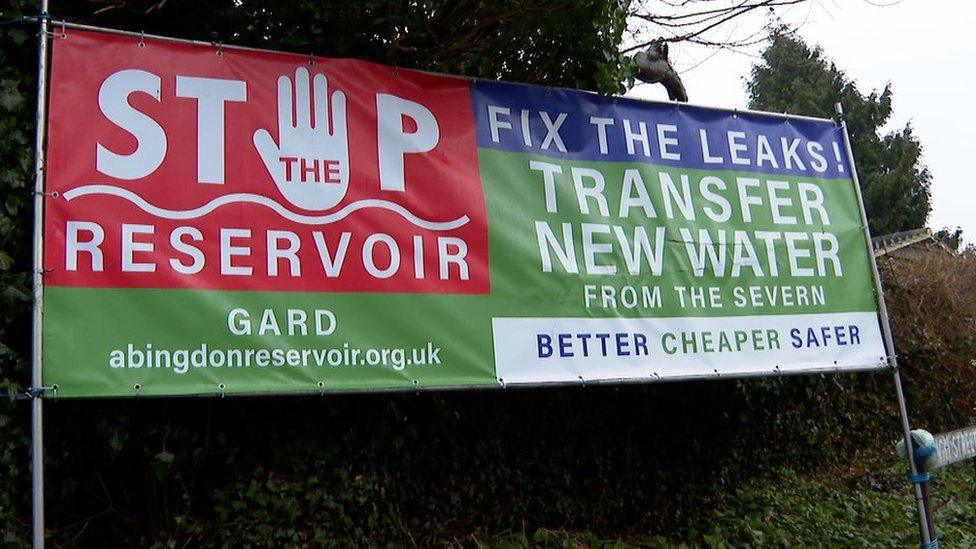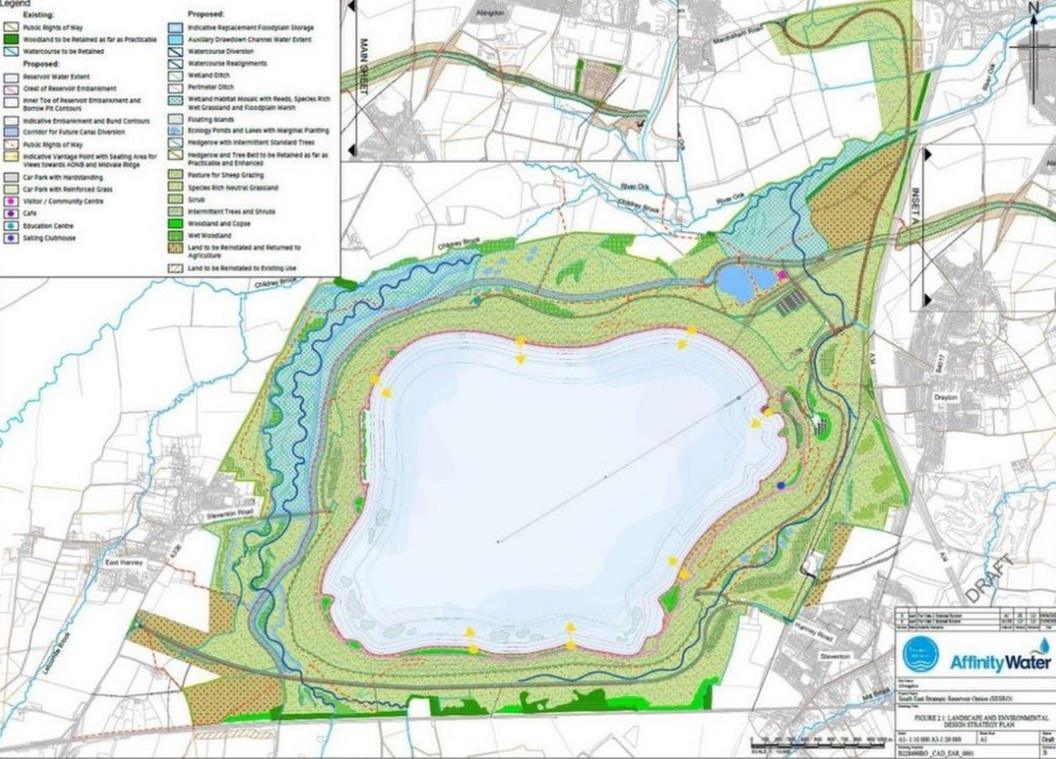Thames Water responds to Oxfordshire reservoir controversy
- Published

A reservoir plan has been floated for the area since the 1990s
A water company has defended a controversial plan for a reservoir and said it will secure future supplies.
Proposals for a reservoir near Abingdon, Oxfordshire, that could cover seven sq km (4.5 sq miles), have been called "destructive" by a council.
Leonie Dubois, from Thames Water, said its range of plans were necessary for the south east region.
"We're in a really scarce water area, and we need to make sure that we're planning effectively for the future."
The reservoir, between East Hanney and Drayton, is part of Thames Water's regional plans to meet future demands for water and ensure water systems are resilient to climate change.
Oxfordshire County Council's place overview and scrutiny committee meeting renewed its opposition to the proposals at a meeting on Wednesday.
The authority had also discussed draft responses to the consultations during a cabinet meeting earlier in the week.
Those objecting to the reservoir shared their concerns about the company's use of "outdated figures" and exaggerated water need, as well as saying the move is too late in the response to climate change.

The reservoir plans have been criticised and critics said climate and population figures are "outdated"
Leonie Dubois, from Thames Water, told the BBC: "We need to have a plan that makes sure we've got enough water for the future.
"All of the schemes that are set within our plan are needed and we're just working through that plan to make it final."
She added that, if Thames Water chose a different plan, "it's likely that it would be more expensive, it's likely that it would have more environmental impact".

The reservoir would hold the equivalent of 40,000 Olympic swimming pools
Ms Dubois was asked about concerns from residents that the firm uses outdated figures on population size and climate change.
She said: "We've been using industry experts to create our model and to develop our plan with us.
"We know that we're having a lot of wetter winters and we know that we're having a lot of drier summers, so it's really important that we have a place to store water."
She added that the reservoir will be an "asset that the community can enjoy", describing it as a new habitat for wildlife, a place for biodiversity and new trees.

Follow BBC South on Facebook, external, Twitter, external, or Instagram, external. Send your story ideas to south.newsonline@bbc.co.uk, external.
Related topics
- Published25 January 2023

- Published19 January 2023

- Published15 November 2022

- Published17 January 2022
